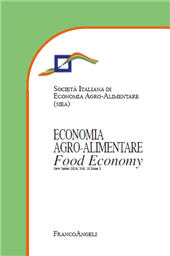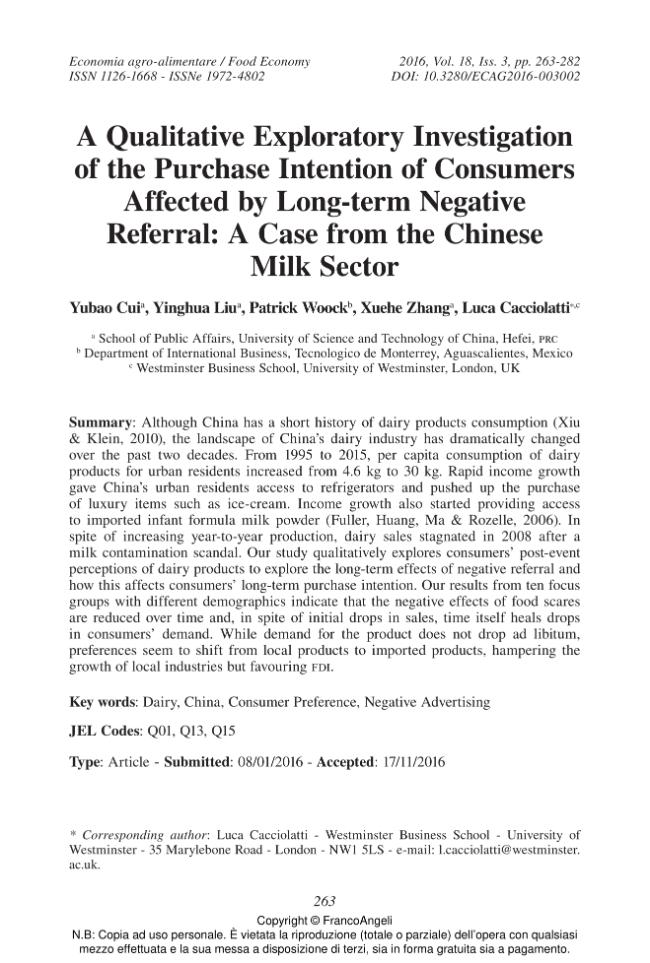A qualitative exploratory investigation on the purchase intention of consumers affected by long-term negative advertising : a case from the Chinese milk sector
263-282 p.
Although China has a short history of dairy products consumption (Xiu & Klein, 2010), the landscape of China's dairy industry has dramatically changed over the past two decades. From 1995 to 2015, per capita consumption of dairy products for urban residents increased from 4.6 kg to 30 kg. Rapid income growth gave China's urban residents access to refrigerators and pushed up the purchase of luxury items such as ice-cream. Income growth also started providing access to imported infant formula milk powder (Fuller, Huang, Ma, & Rozelle, 2006). In spite of increasing year-to-year production, dairy sales stagnated in 2008 after a milk contamination scandal.
Our study qualitatively explores consumers' post-event perceptions of dairy products to explore the long-term effects of negative advertising and how this affects consumers' long-term purchase intention. Our results from ten focus groups with different demographics indicate that the negative effects of food scares are reduced over time and, in spite of initial drops in sales, time itself heals drops in consumers' demand. While demand for the product does not drop ad libitum, preferences seem to shift from local products to imported products, hampering the growth of local industries but favouring FDI. [Publisher's Text].
Fait partie de
Economia agro-alimentare : XVIII, 3, 2016-
Articles du même numéro (disponibles individuellement)
-
Informations
Code DOI : 10.3280/ECAG2016-003002
ISSN: 1972-4802
KEYWORDS
- Dairy, China, Consumer Preference, Negative Advertising, Scandal



